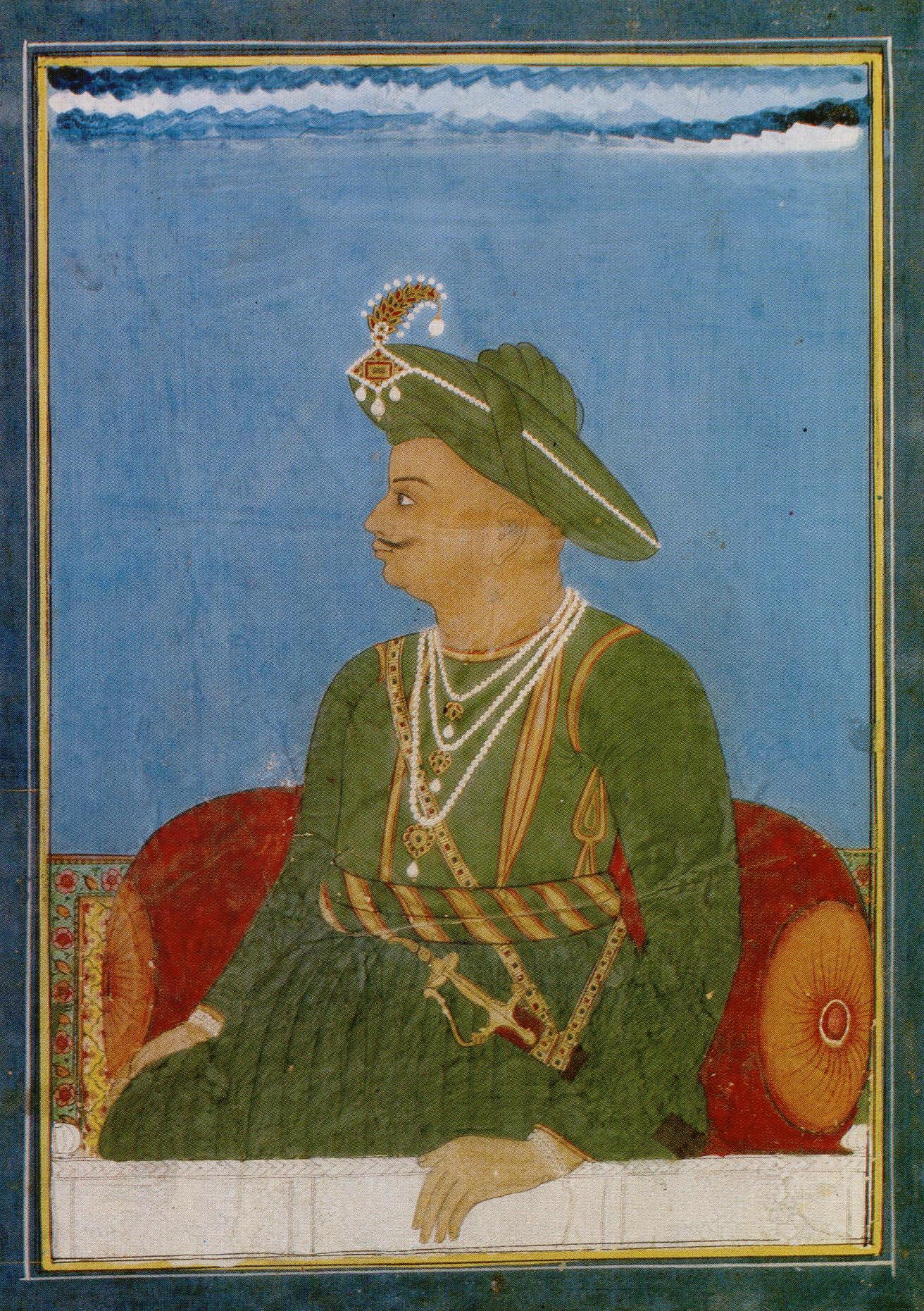Circular of Tipu Sultan to local administrators, quoted by K.N.V. Sastri, in his essay Moral Laws under Tipu Sultan https://archive.org/details/in.ernet.dli.2015.100038/page/n292, in The Proceedings Of The Indian History Congress 6th Session, 1943
From Tipu Sultan's Decrees
Tipu: Frases en inglés
“To live like a lion for a day is far better than to live for a hundred years like a jackal.”
As quoted in Encyclopedia of Asian History (1988) Vol. 4, p. 104
Variants:
It is far better to live like a lion for a day than to live like a jackal for a hundred years.
It is far better to live like a tiger for a day than to live like a jackal for a hundred years.
Variant mentioned in Tipu Sultan : A Study in Diplomacy and Confrontation (1982) by B. Sheikh Ali, p. 329
Tipu Sultan's Letter dated March 22, 1788, to Abdul Kadir. cited in Bhasha Poshini of Chingam 10, 1099 (August, 1923), Article on Tipu Sultan by Sardar K.M. Panicker. Also quoted in Ravi Varma, " Tipu Sultan: As Known In Kerala" in Tipu Sultan: Villain or hero? : an anthology. (1993). http://web.archive.org/web/20170201045809/http://voiceofdharma.org/books/tipu/ch04.htm Also quoted in http://indiafacts.org/tipu-sultan-history-bigotry-barbarities-outside-karnataka/
From Tipu Sultan's letters
Tipu expressing grief against Maratha raid on Sringeri temple and matha. Quoted in Annual Report of the Mysore Archaeological Department 1916 pages 10–11 and 73–6 and History of Tipu Sultan https://books.google.com/books?id=hkbJ6xA1_jEC&pg=PA358 by Mohibbul Hasan, p. 358
Tipu Sultan's Letter dated December 14, 1788, to his Army Chief in Calicut: cited in Bhasha Poshini of Chingam 10, 1099 (August, 1923), Article on Tipu Sultan by Sardar K.M. Panicker. Also quoted in Ravi Varma, " Tipu Sultan: As Known In Kerala" in Tipu Sultan: Villain or hero? : an anthology. (1993).
From Tipu Sultan's letters
Tipu Sultan. In Tipu’s letter of 19 January 1790 to the Governor of Bekal, Budruz Zuman Khan (Badroos Saman Khan). quoted in K.M. Panicker, Bhasha Poshini, August 1923
From Tipu Sultan's letters
Tipu Sultan's Letter dated January 18, 1790, to Syed Abdul Dulai: cited in Bhasha Poshini of Chingam 10, 1099 (August, 1923), Article on Tipu Sultan by Sardar K.M. Panicker. Also quoted in Ravi Varma, " Tipu Sultan: As Known In Kerala" in Tipu Sultan: Villain or hero? : an anthology. (1993).
From Tipu Sultan's letters
In a letter dated 8th Eezidy (February 13, 1790) addressed to Budruz Zuman Khan. (Selected Letters of Tipoo Sultan by Kirkpatrick)., also in C. NANDAGOPAL MENON, TIPU'S OWN TESTIMONY, 1990. in Tipu Sultan: Villain or hero? : an anthology. (1993).
From Tipu Sultan's letters
Tipu Sultan's address on 1788, Quoted in The Sword of Tipu Sultan, by Bhagwan S Gidwani https://books.google.com.sa/books?id=EimPBAAAQBAJ&lpg=PP1&pg=PT262#v=onepage&q&f=true
From Tipu Sultan's Decrees
Tipu Sultan's address on 1788, Quoted in The Sword of Tipu Sultan, by Bhagwan S Gidwani https://books.google.com.sa/books?id=EimPBAAAQBAJ&lpg=PP1&pg=PT262#v=onepage&q&f=true
From Tipu Sultan's Decrees
Circular of Tipu Sultan to local administrators on 1790. Cited in "India as a Secular State" Page 72 by "Donald Eugene Smith" https://books.google.com.sa/books?id=8zXWCgAAQBAJ&pg=PA72
From Tipu Sultan's Decrees
People do [evil] deeds smilingly but suffer the consequences crying
Tipu expressing grief against the raid on Sringeri temple and maatha by a contingent of the Marathas, called the Pindaris.
Fuente: Quoted in Annual Report of the Mysore Archaeological Department 1916 pages 10–11 and 73–6 and History of Tipu Sultan by Mohibbul Hasan, p. 358
